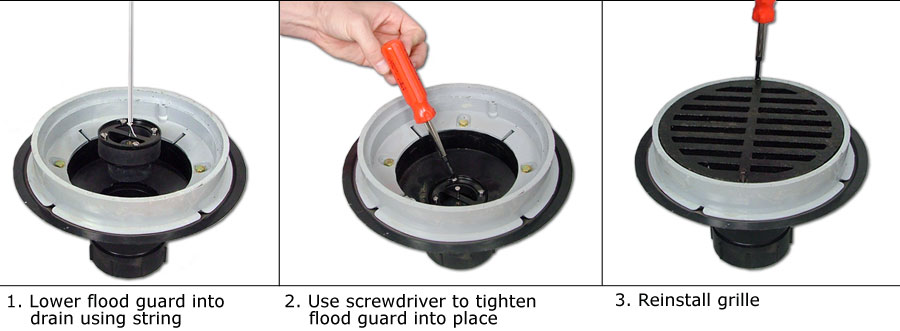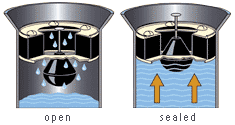Ready.gov is the FEMA site that provides information on how to prepare for multiple disasters and events, like floods.
You may think that you don't need to read this post or prepare for a flood because you have never flooded before.
Wrong.
Flooding can happen to anyone, anywhere. Even if you don't want to take all the steps I am going to go through in this post, it is good to at least be aware of the possibility.
The first thing is to make sure you have an emergency kit and plan. I discussed this in my post How To Prepare For Tornado Season. Ready.gov walks you through how to develop and maintain your kit here. Then you can go here to work on your emergency plan!
This is a good reminder for those of you who meant to do this after reading my other post. Don't feel bad, I still haven't done it either! I will though, because I really do think it is important.
It is also important to understand the risk of flooding in your area. This can be done by reviewing a Flood Insurance Rate Map of your area.
Well, checking the map didn't work very well for me! I checked the area where I live now and was told "sorry there are no items to display for this State, County and Community. Please check the Future or Historic Maps for available panels."
Ah, then I saw further down on the FEMA site that they are changing the maps. Going digital, Digital Flood Insurance Rate Map (DFIRM).
These maps are important not just because they tell you your risk, but because they also tell you how much flood insurance will cost you. These new maps may change the cost of your flood insurance. If you already have insurance you may want to check with your agent to see if you are on the new one, or the old. When considering flood insurance for the first time, ask if there is a DFIRM for your area.
My town map isn't available in the new map catalog either. "Enter your Zip Code to see all of the communities in your county that have maps scheduled to be updated. Even if your community is not listed, changes may still be in progress." Perhaps that is the case for my town...
Well checking these maps turned out to be difficult for me! Hopefully, some of you will have better luck. If not, my suggestion would be calling a flood insurance agent and discussing the risk to your area. You don't have to buy, just become informed.
These are the other preparations that FEMA suggests:
According to Friends of the River a floodplain is the low flat area along a river that can flood periodically. Unfortunately, this area while not flooded is a pretty enticing area to build or farm on. However, this is an area that can and will flood. When the river becomes too high, it will expand into the floodplain.
- Avoid building in a floodplain unless you elevate and reinforce your home.
- Elevate the furnace, water heater and electric panel in your home if you live in an area that has a high flood risk.
- Consider installing "check valves" to prevent flood water from backing up into the drains of your home.
- If feasible, construct barriers to stop floodwater from entering the building and seal walls in basements with waterproofing compounds.
If you do decide to build on a floodplain, make sure you plan ahead and build appropriately.
WiseGeek explains that a check valve makes it so that water can only travel in one direction. It is also called a one way valve or a nonreturn valve, and works in a couple different ways. The most common being a ball valve.
I found a "Flood Guard for Floor Drains" on PlumbingSupply.com.

The company has a wide range of products from water damage prevention to FloodStop systems. I have never ordered products from this company. If you have, I would love to hear what you thought about the company and their products!
Have you used any flood prevention products in your home or business? Built any barriers, or taken any steps to protect against flooding?
Please feel free to share your experiences in the comments section.
I'd love to hear about problems you have had with flooding and what you learned. What you went through may help someone else. That person might even be me someday!



No comments:
Post a Comment